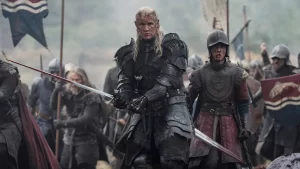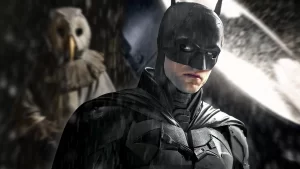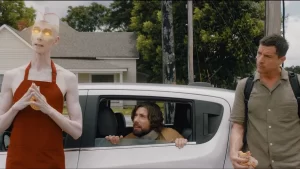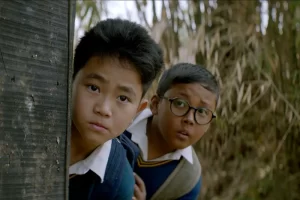
The dark fantasy genre has two giants in contemporary literature: Andrzej Sapkowski, the author of The Witcher saga, and George R.R. Martin, the creator of A Song of Ice and Fire. While both have crafted vast, immersive worlds with intricate plots and unforgettable characters, their approaches to finishing their sagas could not be more different. With GRRM’s admission that The Winds of Winter may never be completed, Sapkowski’s approach and new novel The Witcher: Crossroads of Ravens serves as a reminder of the importance of knowing when to conclude a story, a lesson Martin might need to heed before the weight of his epic becomes unbearable.
The Weight of Waiting: GRRM’s Struggle with Expectations

George R.R. Martin, despite his monumental success, finds himself paralyzed by the expectations of fans and critics. His struggle to finish The Winds of Winter and A Dream of Spring has become a widely known tale of creative block and self-imposed pressure. Martin himself has admitted to being “13 years late,” acknowledging that his inability to finish the series might be due to a combination of ambition and external pressures.
While Martin’s world-building and intricate plots are undeniably impressive, they have come at the cost of the story’s resolution. The Game of Thrones show, which surpassed the books in its storytelling, was met with a controversial and divisive ending that only heightened fans’ expectations for the books’ conclusion. In trying to cater to the ever-growing pressure and pre-established plots, Martin finds himself stuck in an unsolvable creative loop, unsure of how to meet the expectations while delivering a satisfactory conclusion.
One key factor that may be contributing to Martin’s inability to move forward is the sprawling nature of his narrative. The A Song of Ice and Fire books are vast in scope and detail, with multiple characters, intricate politics, and world-building elements. As Martin progresses, it seems that he is struggling not only to tie up loose ends but to decide where and how to bring the grand saga to a close.
Martin’s decision to embark on long spin-offs such as Fire and Blood and The World of Ice and Fire has only prolonged the process, offering readers additional lore instead of an actual resolution. While the TV series reached its disappointing conclusion in seasons 7 and 8, the unfinished books linger, casting a shadow over the entire franchise.
Sapkowski’s Approach: Finishing What He Started

In contrast, Andrzej Sapkowski’s journey with The Witcher saga presents a different, arguably more pragmatic approach. After concluding the main series with The Lady of the Lake in 2009, Sapkowski gave the story a definitive ending, leaving no room for endless speculation or expanding the saga ad nauseam. This allowed the Witcher series, both as books and as a franchise, to maintain its focus, its narrative integrity, and its conclusion, satisfying readers despite some debates over the ending.
What makes Sapkowski’s approach stand out is his decision to only write spin-offs like Seasons of Storms and Crossroads of Raven once the main saga was complete. These works explore the Witcher universe without the burden of continuing the core storyline, which allowed him to dive deeper into the world’s mythology without straining the existing narrative. This foresight and restraint ensured that the Witcher brand, including the immensely successful Witcher game trilogy, never lost momentum. The games, too, could find their own conclusion, thanks to the solid foundation provided by Sapkowski’s decision to wrap up the core narrative.
Even with the disappointing live-action adaptation on Netflix, Sapkowski’s books remain untouched, timeless classics. The Witcher universe, despite some missteps in its adaptation, continues to thrive in other media, from the games to upcoming books. The key here is that the narrative has a clearly defined beginning, middle, and end, and fans can always return to it knowing that the story is concluded.
Lessons for Writers: Knowing When to Stop
Sapkowski’s success offers valuable insight into storytelling. He understood the importance of ending a story on his terms and not becoming consumed by the desire to expand it endlessly. His world-building was meticulous, but he never lost sight of the story’s primary goal: to finish it. This contrasts with Martin, who has found himself caught in a cycle of expansion and world-building, unsure of how to wrap up a sprawling narrative without disappointing his fans.
At some point, writers need to recognize the limits of their narratives. While A Song of Ice and Fire is undoubtedly a brilliant series, its unfinished status has left fans frustrated. The books may continue to be rich in detail, but without a definitive conclusion, the story will always carry the weight of what could have been, leaving a bittersweet taste in the mouths of readers. No matter how impressive a world is, it is only as powerful as its conclusion.
The Final Word: Sapkowski’s Legacy vs. Martin’s Unfinished Dream
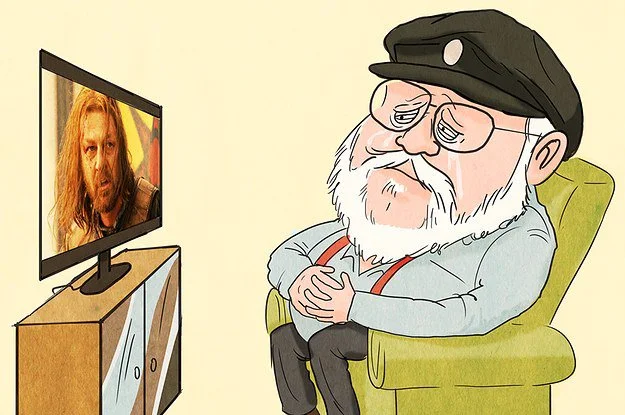
In the end, Andrzej Sapkowski’s decision to complete The Witcher saga with a strong conclusion and then expand it thoughtfully has left him with a legacy that endures. The Witcher franchise remains alive and relevant, largely because Sapkowski didn’t allow his own creative ambitions to hinder the finality of his story. George R.R. Martin, on the other hand, still finds himself wrestling with the enormity of his own creation, unable to finish what he started.
As fans continue to hold out hope for The Winds of Winter, it’s clear that the best way to build a lasting legacy may not be in creating more and more stories, but in knowing when to let go, tie up the loose ends, and deliver a satisfying conclusion. Martin’s creative block serves as a cautionary tale—one that perhaps Sapkowski has already learned, and one that could shape the way we view epic storytelling in the future.
If you have questions regarding Winds of Winter, feel free to ask in the comments below. For more content, stay tuned. As usual, like, subscribe, and share our articles as we are trying to build a community of people High On Cinema!


